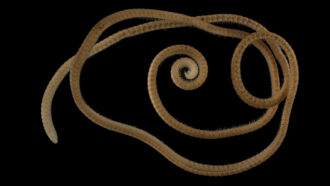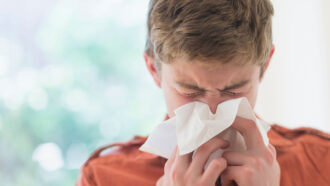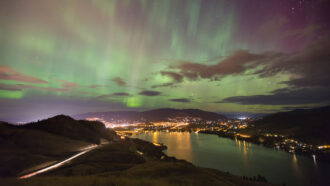All Stories
-
 Animals
AnimalsScientists discover the first true millipede
The newfound deep-living species tunnels belowground using a whopping 1,306 legs!
-
 Health & Medicine
Health & MedicineLet’s learn about snot
For humans, snot plays a key role in fighting off diseases. Other animals have found different uses for the slimy stuff.
-
 Earth
EarthClimate change is upping the height of Earth’s lower atmosphere
The upper edge of the troposphere, the slice of sky closest to the ground, rose 50 to 60 meters (165 to 200 feet) a decade from 1980 to 2020.
By Freda Kreier -
 Space
SpaceScientists Say: Solar wind
This is a powerful gust of charged particles that flows out from the sun through the solar system.
-

-

-

-

-

-

-

-
